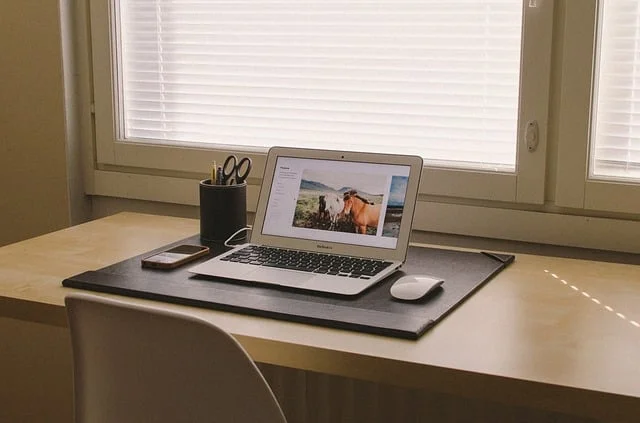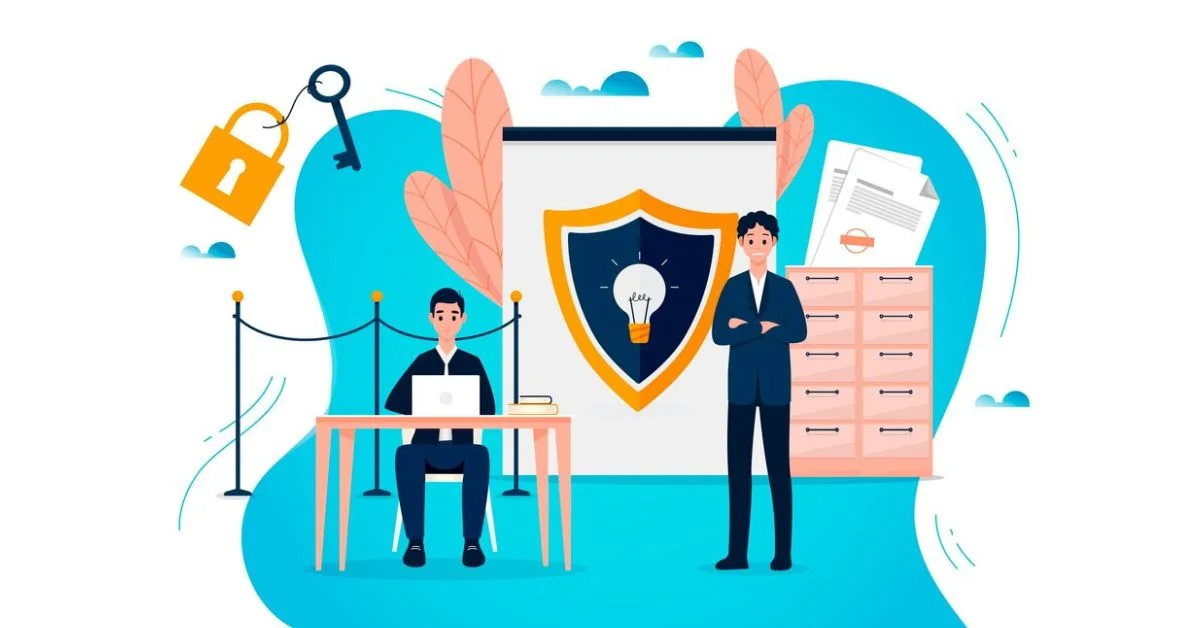EDUCATION
Tips for Creating the Perfect Study Space

Well-designed study space can transform the way you approach learning, enhancing focus, comfort, and productivity. Whether you are preparing for exams, completing assignments, or engaging in independent research, the environment you create plays a significant role in your ability to stay motivated and efficient. This article offers detailed insights into how you can create a study area that is both functional and inspiring.
Choose the Right Location
The location of your study space is one of the most important decisions you will make. Select a spot that is quiet and free from distractions, allowing you to maintain concentration. Natural light is a valuable feature, so aim for a location near a window if possible. Setting up versatile school bookcases in the space can help you keep your materials organized while also maintaining a clean and focused environment. By designating a specific area for studying, you create a physical boundary that mentally prepares you for work.
In shared living situations, use headphones or white noise machines to minimize disruptions. If you live in a smaller space, even a well-organized corner can be turned into a productive study area with the right approach.
Focus on Ergonomics
Ergonomics is not just about comfort; it is about sustaining your focus and energy levels during long study sessions. The right furniture can prevent physical discomfort that distracts from your work. A chair with proper lumbar support and a desk at the correct height can reduce strain on your back and wrists. If you often use a laptop, consider using an external keyboard and mouse to avoid hunching over.
Your physical health directly impacts your mental clarity, so investing in ergonomic furniture is a choice that pays off. Small adjustments, like using a footrest or wrist pad, can make your setup even more effective.
Optimize Lighting
Lighting influences how well you can concentrate and how long you can comfortably work. Poor lighting causes eye strain and affects your mood and energy levels. Position your desk to take advantage of natural light during the day. If this isn’t an option, use a combination of ambient lighting and a focused desk lamp.
Consider the tone of the light you use. Cool white lights can help you stay alert, making them ideal for study sessions, while warmer tones create a relaxing atmosphere for reading or brainstorming. Adjustable lamps provide flexibility, allowing you to tailor the light to your needs throughout the day.
Minimize Clutter
A cluttered workspace can make it harder to focus and increase stress. Start by organizing your books, stationery, and devices into clearly designated areas. Use storage solutions like shelves, drawers, and containers to keep your materials tidy. Keeping only the items you need for your current tasks on your desk can help you stay focused.
Make it a habit to declutter your study space regularly. This practice keeps your area neat and refreshes your mindset, making it easier to approach each study session with a clear mind.

Personalize the Environment
While functionality is key, adding personal touches can make your study space more inviting and motivating. A small plant can improve air quality and add a touch of greenery to your setup. Inspirational quotes, artwork, or even a vision board can help keep your goals in sight.
Be selective with your decor to avoid creating distractions. Choose items that inspire you without overwhelming the space. Colors also play a role in creating the right atmosphere; soft, muted tones are often more conducive to focus than bright, bold hues.
Incorporate Technology Thoughtfully
Technology is both a powerful tool and a potential distraction. To use it effectively, ensure your study area includes only the devices you need. A computer or tablet for research and writing, noise-canceling headphones for focus, and a charging station for your devices are great additions.
Consider using apps to block distracting websites or manage your time effectively. These tools can help you stay on track while maximizing your productivity. When not in use, keep devices like your phone out of reach to minimize interruptions.
Manage the Temperature
The temperature of your study space can affect how comfortable and focused you feel. If your environment is too hot or cold, it may be difficult to maintain your concentration. Adjust the thermostat, use fans, or add blankets to achieve a comfortable setting.
Fresh air can also make a difference, so try to ventilate the room regularly. If your space lacks good airflow, a small air purifier can help keep the environment fresh and conducive to studying.
Stick to a Routine
Establishing a routine helps reinforce the purpose of your study space. Use the area exclusively for studying to create a mental association with focus and productivity. Over time, simply sitting in your study space can signal your brain that it is time to work.
Plan your study sessions at consistent times each day. This habit boosts productivity and helps you manage your workload more effectively.
Create a Distraction-Free Zone
Visual and auditory interruptions can disrupt your concentration, making it harder to retain information and complete tasks. Begin by removing non-study-related items from your workspace, such as gaming devices or unrelated reading materials. Consider noise-canceling headphones or white noise machines if external sounds are an issue.
For those who share their living space with others, communicate your study schedule and boundaries clearly to minimize interruptions. If digital distractions are a concern, use apps that block social media or other non-productive websites during study sessions. A distraction-free zone ensures that your focus remains on your work, maximizing your efficiency and learning potential.
A thoughtfully designed study space can significantly enhance your productivity, focus, and overall learning experience. By choosing the right location, prioritizing ergonomics, optimizing lighting, and minimizing clutter, you create an environment that fosters concentration and efficiency. Adding personal touches, managing the temperature, and incorporating technology thoughtfully can further tailor the space to your needs. Establishing a routine and creating a distraction-free zone reinforces the purpose of the area, making it easier to stay on track with your goals.
With these strategies, your study space becomes more than just a place to work—it becomes a supportive environment that helps you achieve your academic and personal objectives. By committing to these principles, you set yourself up for success, no matter the challenges you face.
EDUCATION
Inside the Scrubs: Nurse’s Journey

Nursing is a dynamic and rewarding profession that demands a great deal of compassion, technical skill, and resilience. Every day, nurses face challenges ranging from managing patient care to keeping up with rapid advancements in medical technology. An integral step in this journey is passing the National Council Licensure Examination (NCLEX), a pivotal exam that assesses a nurse’s readiness to practice safely and effectively.
The Path to Becoming a Nurse
To embark on a nursing career, individuals must first complete an educational program suited to their career goals. Options include a diploma in nursing, an Associate Degree in Nursing (ADN), or a Bachelor of Science in Nursing (BSN).
Each pathway offers a unique blend of practical training and theoretical knowledge. For those aiming for a comprehensive education with better long-term career prospects, a BSN is advisable, as it opens doors to advanced practice roles and higher earning potential.
The NCLEX is crucial for obtaining licensure as a registered nurse (RN) or licensed practical nurse (LPN). This exam tests candidates on their knowledge and ability to make sound clinical judgments in various healthcare scenarios. Using NCLEX exam questions during study preparation can help candidates familiarize themselves with the types of scenarios they may encounter. The latest updates to the NCLEX focus on enhancing the assessment of clinical judgment skills, ensuring that nurses are well-prepared to meet the demands of modern healthcare settings.
Daily Life of a Nurse
Nurses often begin their day by checking patient charts and planning care routines. Depending on their workplace, such as a hospital, clinic, or community center, the specifics of these routines can vary significantly. Tasks typically include administering medications, collaborating with other healthcare professionals, and providing direct patient care through assessments and treatments.
Nursing can be physically demanding and emotionally draining, often requiring long hours and the ability to manage high-stress situations. However, the profession is also incredibly rewarding, offering the chance to make a significant impact on patients’ lives daily. Nurses often cite the personal connections with patients and the satisfaction of knowing they are making a difference as key rewards of their profession.
Key Skills and Qualities of Successful Nurses
Successful nurses embody a mix of hard and soft skills that enable them to handle the diverse demands of the healthcare field effectively.
Essential Skills
- Clinical Competence: Proficient in performing medical procedures and delivering patient care based on the latest health standards.
- Critical Thinking: Ability to make quick, informed decisions regarding patient care.
- Communication: Strong verbal and written skills for effective interaction with patients, families, and healthcare teams.
Personal Qualities
- Compassion: A deep empathy for patients and their conditions.
- Resilience: The strength to cope with challenging situations and emotional stress.
- Adaptability: Flexibility in handling the unpredictable nature of healthcare settings.
Advancement and Specialization Opportunities
Nurses have vast opportunities to advance their careers by specializing in different fields of medicine. Specialties like pediatrics, oncology, geriatrics, and critical care require specific skills and knowledge that are typically gained through further education and clinical experience.
Continuing Education and Certifications
Continuing education is crucial for nurses looking to advance in their careers. Additional certifications in areas such as acute care, anesthesia, or family practice not only expand a nurse’s skill set but also improve their career prospects and potential earnings.
Nurses have access to a wide array of resources that support their professional growth and well-being. Organizations such as the American Nurses Association (ANA) and the National League for Nursing offer networking opportunities, professional development, advocacy, and up-to-date industry information.
Many institutions and professional bodies offer courses that help nurses stay current with medical advancements and maintain licensure.
Support from colleagues through mentorship programs and online communities can provide emotional backing and career guidance.
NCLEX Preparation Resources
Free NCLEX practice tests are invaluable resources for graduates preparing for licensure. Websites like MedicalHero.com offer practice questions and simulations that mimic the format and rigor of the actual exam. By leveraging these skills, opportunities, and resources, nurses can not only thrive in their current roles but also pave the way for future advancements in their careers.
LAW
Strategic Trust Planning for Fortified Asset Protection

Table of Contents
- Key Takeaways
- Comprehensive Overview of Asset Protection Trusts
- Deciphering the Legal Framework Surrounding Trusts
- Best Practices for Establishing Trusts
- Selecting the Right Assets for Your Trust
- Additional Advantages of Trust Formation
- Navigating the Considerations and Limitations of Trusts
- Why Professional Advice is Critical in Trust Management
- The Lasting Significance of Trusts in Asset Management
Key Takeaways
- Trusts are practical tools for creating a barrier against creditors and safeguarding your assets.
- Tailoring your trust according to state-specific laws and asset types is necessary for it to serve its purpose fully.
- While trusts provide numerous benefits, they also have certain restrictions that must be prudently evaluated.
- Professional legal and financial advice is paramount in navigating the complexities inherent in trust management.
Comprehensive Overview of Asset Protection Trusts
Domestic Asset Protection Trusts strike a balance between asset protection and flexible control. Adequate asset protection is proactive and comprehensive. A solid plan can ensure that assets remain secure under the trust’s guidelines. Robust asset protection strategies integrated with estate planning goals can achieve comprehensive security for financial legacies.
Deciphering the Legal Framework Surrounding Trusts
Trusts are legal arrangements that protect assets. To be effective, they must comply with complex laws that vary across states and change over time. A trustee with expertise and integrity plays a critical role in managing trusts, balancing compliance with legal requirements, and managing assets. The most important thing is that the trustee’s actions aim to preserve and enhance the value of the trust assets for the beneficiaries.
Best Practices for Establishing Trusts
Building trust requires a personalized approach considering an individual’s financial situation and goals. Choosing the right trust and accurately funding it is crucial for its effectiveness. Trusts must adhere to legal standards and be executed correctly, requiring the guidance of legal professionals. Mistakes in the trust creation process can have severe consequences, emphasizing the need for thorough preparation and compliance with legal requirements.
Selecting the Right Assets for Your Trust
A customized strategy is required to protect various assets through a trust. This strategy should cater to the specific protection needs of each asset type. Transferring assets into a trust should be approached carefully to ensure adequate protection within the trust’s structure.
Additional Advantages of Trust Formation
Trusts offer advantages for financial and estate planning. They protect assets, minimize estate taxes, maintain family privacy, and control wealth distribution. Trusts provide peace of mind by reducing administrative burden and ensuring that the legacy left behind reflects the grantor’s intentions for their family’s future.
Navigating the Considerations and Limitations of Trusts
Trusts offer benefits but also have limitations. Laws restrict access and control over trust assets, which may be challenging for those used to manage assets directly. Trusts may have stipulations on distributions, investments, and beneficiary rights, which should align with the grantor’s goals. Irrevocable trusts offer protection but require the grantor to relinquish control over assets. Finding the right balance between power and safety is crucial when considering an irrevocable trust as part of an asset protection strategy.
Why Professional Advice is Critical in Trust Management
Trust law is complex and requires expert guidance for trusts and estate planning. Professionals in this field ensure compliance with legal statutes, protect assets, and meet wealth management goals. Their advice is essential for drafting the trust document, selecting a trustworthy trustee, and strategically funding the trust.
The Lasting Significance of Trusts in Asset Management
Trusts are essential for wealth preservation and estate planning. Domestic Asset Protection Trusts provide specialized security for individual needs and long-term objectives. Trusts offer a regulated structure for managing wealth with foresight and intention. Although complex, a well-devised trust strategy can be highly beneficial. Professional expertise and strategic planning can turn trusts into a cornerstone of financial resilience and legacy building.
LAW
A detailed guide on Tax refund for tourists’ schemes in the UAE

While staying in the UAE, tourists have the opportunity to claim a refund on the Value Added Tax (VAT) for goods they purchase. This initiative was elucidated by the Federal Tax Authority in 2018. This article serves as a detailed guide on the VAT refund schemes available to tourists in the UAE.
Whether you are a visitor exploring the country or delving into business and career prospects, seeking assistance from VAT Registration UAE’s tax experts is always advisable. The VAT refund process for tourists in the UAE operates through an electronic system, which was established following the implementation of VAT by the FTA.
It is important to note that this refund scheme solely pertains to traders registered under the “Tax Refund for Tourists Scheme.” Only those affiliated with this scheme are eligible to receive VAT refunds. Understanding the procedure for claiming a VAT refund for tourists in the UAE, as well as how travellers can retrieve VAT payments from their accounts, is essential.
The implementation of the tax refund for tourists in the UAE
The tax refund system for tourists in the UAE is subject to particular conditions that dictate when and how refunds can be claimed. These conditions outline the eligibility criteria and important dates for refund requests:
- The retailers participating in the Scheme will be required to initiate refund claims to tourists as of 18th November 2018.
- The overseas tourists can claim their VAT refunds at Abu Dhabi International Airport, Sharjah International Airport or Dubai International Airport as of 18th November 2018.
- Lastly, overseas tourists also have the option to claim their VAT refunds at the land ports and seaports, applicable as of 16th December 2018.
Purchase procedures applicable for VAT refund for tourist schemes in the UAE
The purchase procedure is as follows when a customer intends to purchase from the retailer under the tax refund for tourist schemes:
- Whenever a retailer gets a purchase request from a tourist under the tourist refund scheme, the retailer must perform a check for the following eligibilities: –
- According to clause 3 of Article 68 of the Cabinet Decision No. 52 of 2017 referred thereto, the client is an Overseas Tourist who was present in the State at the time of the Goods purchase and who is present at the retail establishment with purchase receipts.
- When asking for a refund claim form to be issued. The retailer should also ensure that the supply of goods was made within 90 days, not exceeding 90 days from when the issuance of refund documents was requested.
2. The customer and purchase details must be maintained per the details specified by the FTA and the Operator.
3. The required documents must be issued to the customer to claim their VAT refund on exporting the goods.
4. Depending upon the requirement of some goods and their categories, the retailer must ensure that the goods are packed well to ensure smooth handling and delivery to the customer in their home country.
5. Any other conditions, if the retailer should also meet any, to ensure accordance with the agreement approved by the retailer for providing a tax tax-free purchase service.
For any further queries relating to the purchase requirements for tax refunds for tourist schemes in the UAE, you must contact the tax consultant in dubai for their invaluable guidance and support.
Export procedures to be adhered to by the operators for tax refunds for tourist schemes in the UAE
The operators of the tax refund schemes for tourists must ensure that the tourists claiming the refund are for the goods that have been exported within 90 days from the date of supply. If not, then the refund claims must be rejected. He is also supposed to verify that the exported goods and the refund claim align with the criteria the authority agreed upon. Also, if the authority has consented, the Operator can appoint a third party to verify on his behalf. VAT consultants in the UAE are always for any assistance at your service.
Applicable fees and refunds under the tax refund for tourist schemes in the UAE
The authority has been allowed to charge a service fee to the overseas customers as follows-
- An administrative fee of 15% of the total VAT refund amount claimed.
- A fixed fee of AED 4.80 per refund claim.
The Operator can also deduct the fee from the amount that the overseas tourist is supposed to get back as a refund from the FTA. The point to note here is that the cash VAT refund amount will have a cap of AED 10,000 per tourist per day (24 hours).
Also, When an Overseas Tourist claims a refund from a Taxable Person, the tax will not be reimbursed under the Scheme for any claim if the value of the tax-inclusive purchases made from that Taxable Person is not AED 250 or higher.
Any doubts related to fees can be clarified through VAT consultants in the UAE.
Goods that do not fall under the tax refund schemes in the UAE
The following goods are not included in the refund scheme for tourists in the UAE
- The goods or items not carried by the tourists when they leave the country.
- The goods that have been consumed fully or partially in the state of any other implementing state.
- Motor vehicles, aircraft and boats.
Considering the above points, the tourist tax refund guide might look complicated to the visitors. Therefore, they must find some tax consultants in the UAE who can help them solve their queries and guide them in claiming their refund. They will also help you identify the goods eligible for tax refunds under this Scheme.
Engage the Expert Services of VAT Registration UAE
The tax consultants and VAT experts in the UAE, accessible through VAT registration UAE, stand ready to assist you in claiming VAT refunds should you decide to depart the UAE following your vacation. Reach out to us today to gain clarity on the VAT refund process in the UAE, including how tourists can seek refunds on purchases made during their stay. Thus, contact us today and we shall be glad to assist you.

 TECHNOLOGY4 months ago
TECHNOLOGY4 months agoBlog Arcy Art: Where Architecture Meets Art

 ENTERTAINMENT2 weeks ago
ENTERTAINMENT2 weeks agoExploring the Kristen Archives: A Treasure Trove of Erotica and More

 LIFESTYLE4 months ago
LIFESTYLE4 months agoThe Disciplinary Wives Club: Spanking for Love, Not Punishment

 LIFESTYLE2 weeks ago
LIFESTYLE2 weeks agoWho Is Sandra Orlow?

 GENERAL3 days ago
GENERAL3 days ago5 Factors That Affect Tattoo Removal Success

 ENTERTAINMENT8 months ago
ENTERTAINMENT8 months agoYuppow: Your Free Source for Movies and TV Shows

 HOME IMPROVEMENT5 days ago
HOME IMPROVEMENT5 days agoGet Your Grout to Gleam With These Easy-To-Follow Tips

 ENTERTAINMENT1 week ago
ENTERTAINMENT1 week agoKiss KH: The Streaming Platform Redefining Digital Engagement and Cultural Currents












